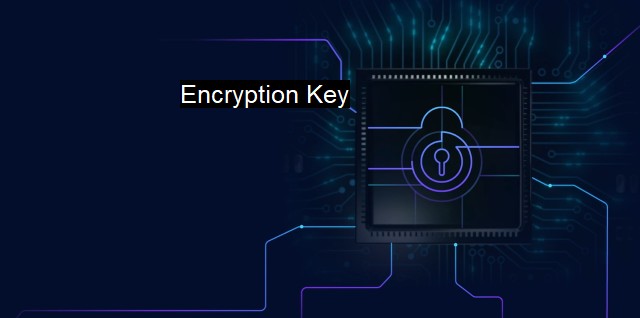What is Encryption Key?
The Importance of Encryption Keys in Cybersecurity: Ensuring Confidentiality, Integrity, and Authenticity of Data.
Encryption key plays a vital role in cybersecurity protocols, ensuring individuals' data security and companies' classified information. This encryption process is one significant aspect of a comprehensive security approach featured in most antivirus solutions. Implementing encryption translates normal text or data into encoded or ciphered text, to be read or processed only through an encryption key. Understanding this vital tool's ability to ensure data security is a foundational pillar in understanding cybersecurity.An encryption key, by definition, is a piece of code whose purpose is to convert the original plaintext into encrypted text and then reverse this conversion process upon reaching its legitimate recipient. To put simply, an encryption key makes your data unreadable to unauthorized users. This encryption is crucial because, without it, someone can intercept the data, alter it, or potentially use it for malicious reasons.
Encryption keys function in two distinct security procedures, namely symmetric key and asymmetric key encryption, often present in sophisticated antivirus software. Symmetric encryption, commonly referenced as a private key, uses the same encryption key to both code and decipher the data. This private key must be meticulously dealt with considering it perils due to its distribution to relevant parties.
On the contrary, asymmetric encryption employs two different keys-public and private. The public encryption key is available to all individuals; conversely, a private key remains confidentially stockpiled. The initial ‘plaintext’ is encoded using the public key, and upon reaching its designated party is decoded deploying the private key.
While every encryption key is an integral part of the encryption process, the added dimension of complexity makes wrongful decryption excessively intricate. This complexity implicates encryption keys become longer for advanced defenses against potential cyber threats. Modern encryption algorithms like the Advanced Encryption Standard (AES) can generate encryption keys upwards of 256-bits long. This helps render the data unreadable without the correct decryption key in place.
A significant point to be explored would be the benefit of encryption key offshoots— Hashing and salting. Hashing converts plain text data into a fixed length of letters and number series even though the transmission's content differs significantly. It lends protection against attackers attempting to discover identifying patterns in your encrypted data. Hashing, when paired with salting, strengthens the encryption protection for a device. Salting adds random data to the hashing process, allowing additional security against cyber threats and brute-force attacks.
Antivirus solutions frequently utilize encryption keys to secure antivirus software updates, scanned data, and data transmissions among various antivirus community networks. Escalating security concerns prompt ERP, CRM, HR management systems, financial and banking systems to incorporate higher-end decryption measures heavily banking on encryption keys. cloud storage companies invest in stronger encryption keys to optimally secure their data in storage and transit.
The encryption key is vital for myriad contexts from cybersecurity to antivirus software. Working as an essential ally in providing data security measures, it significantly reduces security vulnerabilities. The modern computing era heavily relies on encryption and encryption keys, making it a fundamental component of computer and information technology. A sound knowledge of encryption and its methodologies enhances comprehension of cybersecurity procedures and their consequent improvements. Such a stand not only prepares business entities and individuals to brace cybersecurity menaces but importantly encourages cultivating a pro-security culture.

Encryption Key FAQs
What is an encryption key?
An encryption key is a piece of information or code used to encrypt and decrypt data. It is a crucial component of modern cybersecurity and antivirus tools.Why is an encryption key important?
An encryption key provides an additional layer of security to protect sensitive data from unauthorized access. Without an encryption key, it would be much easier for cybercriminals to steal or intercept data.How is an encryption key managed?
Encryption keys are typically managed by a key management system (KMS) or other specialized software designed to securely store keys and ensure they are only accessible to authorized users. The KMS can also create, rotate, and revoke keys as needed to maintain security.What happens if an encryption key is compromised?
If an encryption key is compromised, it can render any data encrypted with that key vulnerable to unauthorized access. In such cases, the key should be revoked immediately, and any data encrypted with it should be decrypted and re-encrypted with a new key. This process can be time-consuming and costly, underscoring the importance of proper key management and security protocols.| | A | | | B | | | C | | | D | | | E | | | F | | | G | | | H | | | I | | | J | | | K | | | L | | | M | |
| | N | | | O | | | P | | | Q | | | R | | | S | | | T | | | U | | | V | | | W | | | X | | | Y | | | Z | |
| | 1 | | | 2 | | | 3 | | | 4 | | | 7 | | | 8 | | |||||||